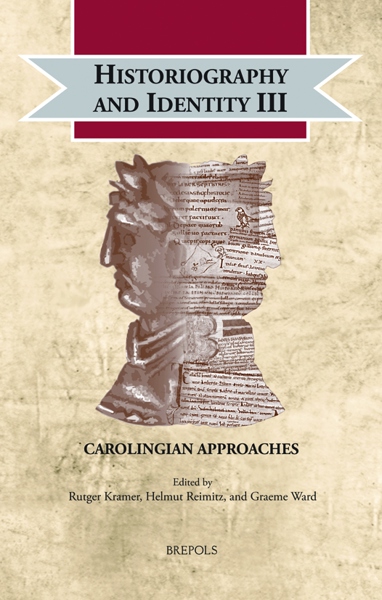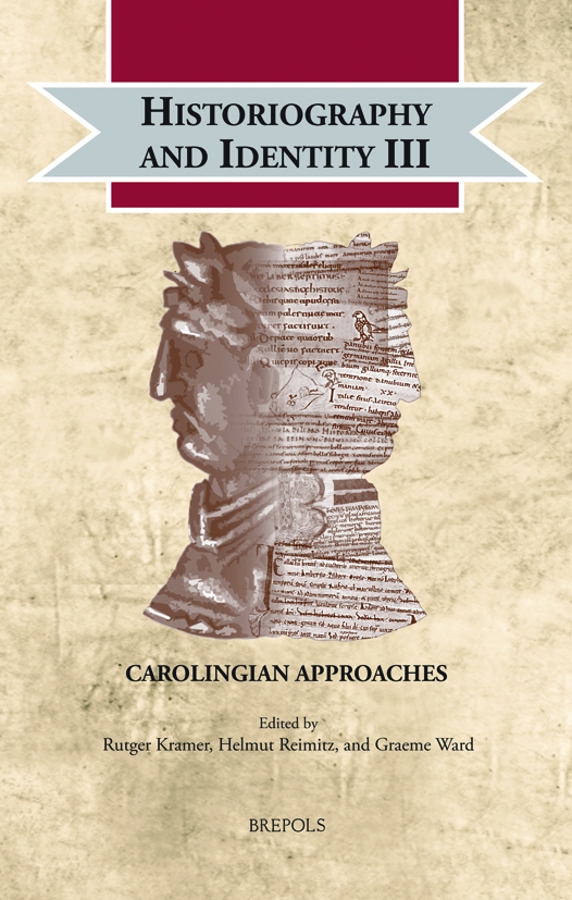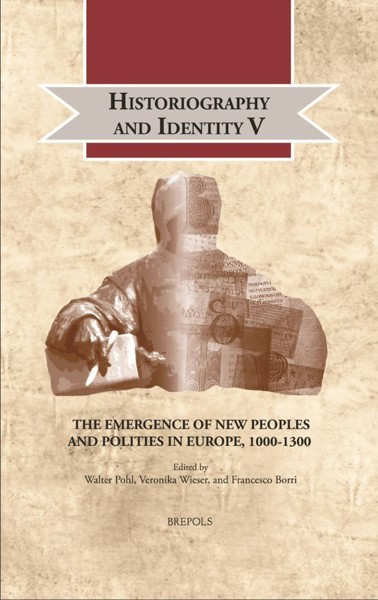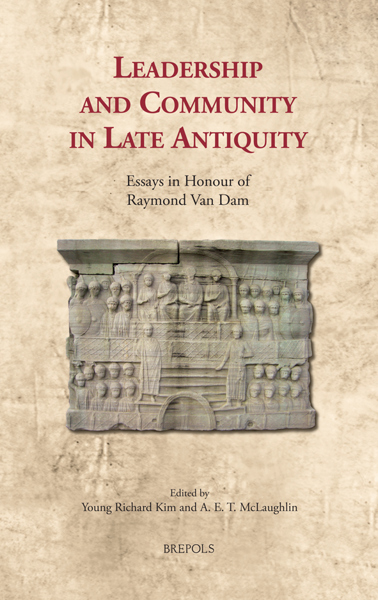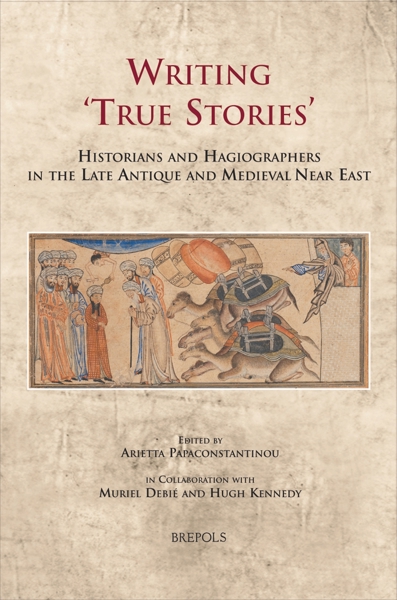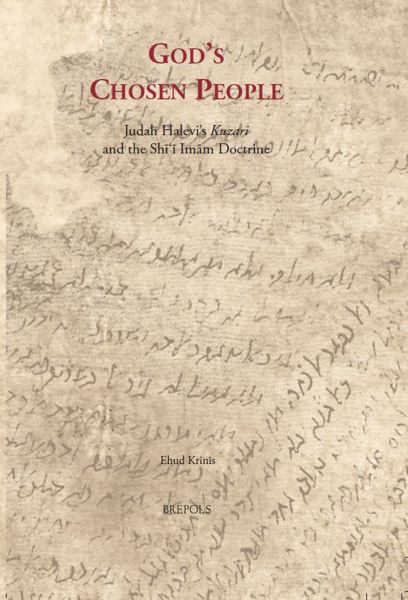
Historiography and Identity III: Carolingian Approaches
Rutger Kramer, Helmut Reimitz, Graeme Ward (eds)
- Pages: viii + 396 p.
- Size:156 x 234 mm
- Illustrations:2 b/w, 2 tables b/w.
- Language(s):English
- Publication Year:2021
- € 100,00 EXCL. VAT RETAIL PRICE
- ISBN: 978-2-503-58655-7
- Hardback
- Available
- ISBN: 978-2-503-58656-4
- E-book
- Available
In this volume, the diversity of Carolingian historiographical material is brought to light using a broad variety of methodological approaches and different modes of interpretation.
“As a collection of essays, Carolingian Approaches has much to commend. These studies all succeed in presenting thoughtful variations on what at first glance might seem a relatively well-trodden path.” (Edward Roberts, in The Medieval Review, 21.12.29)
« En résumé, nous sommes là en présence d’un recueil d’articles extrêmement varié et stimulant, abordant l’historiographie carolingienne sous une multitude d’angles d’approche avec des questionnements novateurs et ouvrant des pistes de recherche qui s’avèreront sans nul doute fécondes; nous ne pouvons donc qu’attendre impatiemment les prochaines productions de cette équipe de chercheurs dont les membres sont déjà bien connus pour leurs importantes contributions aux études historiographiques médiévales. » (Julien Bellarbre, dans Francia-Recensio, 1, 2022)
“Die Beiträge des Bandes sind durchweg von hoher Qualität und bieten wertvolle Einblicke in Quellen und Fragestellungen, die von der bisherigen Forschung zur karolingischen Geschichtsschreibung eher vernachlässigt wurden.” (Christian Scholl, in der Historischen Zeitschrift 314/3, 2022, p. 756)
« Cet ensemble de contributions montre de la richesse et la diversité de la pratique de l’histoire à l’époque carolingienne avant et après 829 (fin des Annales regni Francorum). Cette historiographie témoigne de bien d’autres préoccupations que l’affirmation d’un consensus unitaire autour des princes carolingiens. Un prochain volume abordera l’héritage de ces approches carolingiennes dans la période 1000–1300. » (Michel Sot, dans Le Moyen Âge, 3-4, 2022, p. 769)
“(…) this is a very impressive volume that manages to create a whole greater than the sum of its (already very strong) parts, and repays reading from cover to cover. Assessing how well it fits in with the rest of the series will have to wait until all the other volumes are published, but anyone interested in the writing of history in the early medieval period will benefit from this book.” (SAM OTTEWILL-SOULSBY, in Journal of Ecclesiastical History, 73, 2022, p. 138)
Helmut Reimitz is Professor in the Department of History at Princeton University.
Rutger Kramer is Assistant professor at the Radboud Institute for Culture and History, Radboud University Nijmegen.
Graeme Ward is a British Academy Postdoctoral Fellow at the University of Oxford.
Note: the full text of this volume is now available in Open Access at: https://www.brepolsonline.net/action/showBook?doi=10.1484/M.CELAMA-EB.5.118545
This volume explores the extent to which the reinstitution of the Empire in Western Europe brought about new ways of reconciling the multitude of post-Roman identities with the way the past was shaped in historiographical narratives. From universal histories to local chronicles, and from narratives that support Carolingian rule to histories with a more local focus, the centralization of power and authority in the course of the eighth and ninth centuries forced those who engaged with their own past and that of their community to acknowledge the new situation, and situate themselves in it. The contributions in this volume each depart from a single source, event, or community, and relate their findings to the broader issue of whether the rise of the multi-ethnic Carolingian court allowed for more inclusive narratives to be created, or if their self-proclaimed place at the centre of the Frankish world actually created a context in which local communities were given new tools to assert themselves.
Histories of Carolingian Historiography: An Introduction — HELMUT REIMITZ
Carolingian Uses of History
From the Order of the Franks to the World of Ambrose: the Vita Adalhardi and the Epitaphium Arsenii Compared — MAYKE DE JONG
Remembering the Ostrogoths in the Carolingian Empire — MATTHIAS M. TISCHLER
A Carolingian Epitome of Orosius from Tours: Leiden VLQ 20 — ROSAMOND MCKITTERICK & ROBERT EVANS
Approaches to History: Walahfrid’s Parallel Universe — RICHARD CORRADINI
Carolingian Histories
Enhancing Bede: The Chronicon Universale to 741 — SÖREN KASCHKE
A Crowning Achievement: Carolingian Imperial Identity in the Chronicon Moissiacense — RUTGER KRAMER
Much Ado about Vienne? A Localizing Universal Chronicon — SUKANYA RAISHARMA
The Sense of an Ending in the Histories of Frechulf of Lisieux — GRAEME WARD
Uses of Carolingian History
Historiography of Disillusion: Erchempert and the History of Ninth-Century Southern Italy — WALTER POHL
‘A Man of Notable Good Looks Disfigured by a Cruel Wound’: The Forest Misadventure of Charles the Young of Aquitaine (864) in History and Legend — ERIC GOLDBERG
Index
